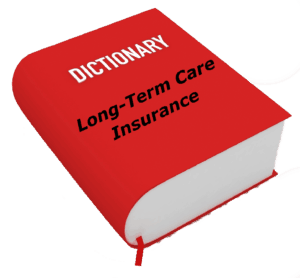Prenuptial Agreement & Long-Term Care Planning
First things first: Pre-nuptial (“pre-nup”) agreements do NOT protect a couple’s separate assets from Medicaid long-term care spend-down requirements.
Pre-nups (or post-nups) are ineffective for Medicaid asset protection because Medicaid ignores them. If you apply for Medicaid, it is as if the pre-nup never existed.
For couples who are legally married all of their combined, “countable” assets are subject to the Medicaid spend-down requirements regardless of how the assets are titled. It does not matter if assets are held separately or jointly. And in all but a couple of states, the non-Medicaid spouse (the “Community Spouse”) risks all of his or her qualified funds (IRA – traditional or Roth, 401(k), 403(b), etc.) as even these separate retirement funds are considered countable – not protected – by Medicaid.
Even if a pre-nup has “Title 19” (= Medicaid) “asset protection language”, it is moot. It does not work. Again, Medicaid will not even look at a pre-nup when determining financial eligibility for state long-term care benefits.
If a couple has a pre-nup, Medicaid will allow them to divorce according to the provisions of the pre-nup. But to get the pre-nup’s asset protection, you must file and complete a divorce.
Which type of policy is right for you?
No phone required.
Custom quote in 2 hours.
Instant ranking of the 4 types of long-term care coverage.
It is worse for couples without a pre-nup because while divorce may be an option, separate assets are still not fully protected. The Family Court in most states will not allow one spouse to be impoverished as a result of the divorce even if that spouse agrees to the terms. Why? Because the state has an interest in making sure that a divorce does not itself create a state welfare obligation. If there is not alleged gross misconduct, the asset split will likely be 50/50 of any and all assets gained during the marriage, or very close to that, and if separate assets owned before the marriage have been used in the support of both during the marriage, those assets could also be subject to joint splitting in the divorce.
Here is a better solution: A pre-nup can require that both parties to the marriage own and maintain long-term care insurance with total benefits at least equal to the assets that they wish to protect separately. A Medicaid Partnership-qualified long-term care policy would be ideal as it provides complete Medicaid asset protection equal to the total benefits paid if the policy is used up but a need for care continues. If you are already married and do not have a pre-nup, partnership-qualified long-term care insurance can protect you just the same.
This is an area fraught with legal and financial complications and requires the professional input of a qualified Family Law and/or Elder Law Attorney.
Bottom line: If your long-term care plan is expecting to get state Medicaid benefits while holding assets separately – with or without a pre-nup – you may be in for a very rude awakening.
 personal circumstances.
personal circumstances.


Facebook Comments